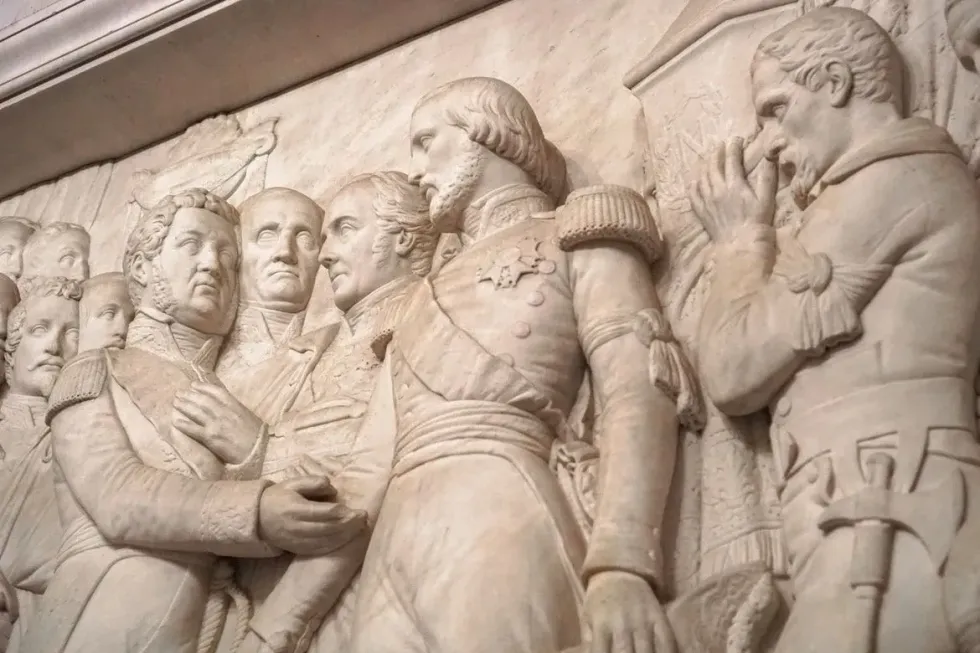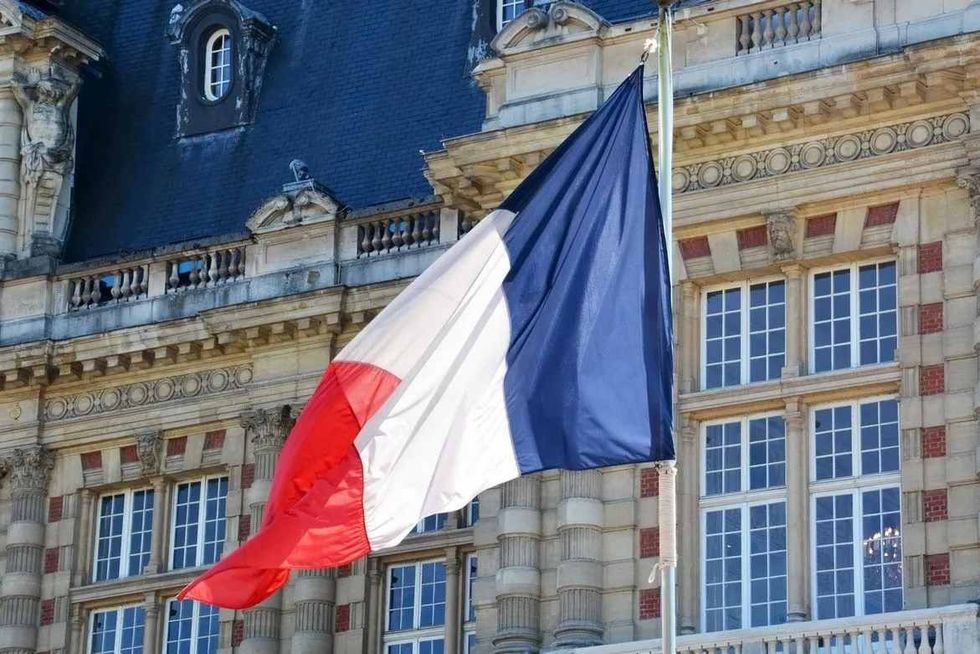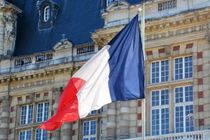211 Facts About Napoleon Bonaparte To Learn About The French Leader

One of the most charismatic and well-known figures in world history, Napoleon Bonaparte, became the Emperor of France a little after the French Revolution.
He was a great military leader who earned respect from people worldwide due to his demeanor and well-intentioned reforms. His social and war reforms are still the subject of study in several military schools across the globe.
He was known as Napoleon I during his tenure as emperor from 1804-1814. He had the ambition to conquer all of Europe but could not do so.
He is both celebrated and criticized for his tactics in the Napoleonic Wars. Napoleon was a natural leader who quickly climbed the ladder as the head of the French government, which became possible due to his numerous victories in Italy and further south in Egypt.
He became the first consul of France in 1799 when he seized the nation's power.
He quickly established himself as a popular leader through his military dominance and legal reforms. The Napoleonic Code consists of these reforms, which replaced the outdated feudal legislation laws.
Napoleon defeated Austria and brought peace for some time. This peace was short-lived as he had to fight in various battles over the years all over Europe against many coalition governments.
His reputation grew as a military leader even more during these years. Napoleon was indeed a dictator and a tyrant, but he spread public education in his kingdom and oversaw several innovations such as braille writing and canned food.
He was defeated at the Battle of Waterloo and abdicated his throne in 1815. Napoleon spent the rest of his life in exile on Saint Helena's Island.
If you enjoy this article and find it captivating, you should also check out similar articles on facts about Ponce de Leon and King Richard the Lionheart facts.
Facts About Napoleon
The most famous 'fact' about Napoleon Bonaparte is that he was short. This is not only false, but in fact, he was taller than the average French man of the time.
He measured 62 in (157.5 cm) during his death, which was the height of an average man, but the scale was smaller in French units than today.
In actuality, his height was about 66-67 in (167.6-170.2 cm), which was quite tall by the standard of the age. His height would make him taller than both Stalin and Lenin, 65 in (165.1 cm) and about the same height as Vladimir Putin (67 in (170.2 cm)).
The short stature originated from the British, who tried to embarrass him in front of Europe. He was depicted as comically short in cartoons published during the Napoleonic Wars.
The phrase 'Napoleon complex' is used even today to describe a psychological affliction called 'short man syndrome.'
He surrounded himself with tall bodyguards and earned the affectionate title of 'le petit caporal.' The name was not about his height but about his affection among his subordinates.
Another incorrect 'fact' about the emperor of France is that he had a fear of cats or ailurophobia. Napoleon did not have any such thing, but his nephew, Napoleon III, was truthfully afraid of the feline animals. His wife kept cats in their home, so it was likely that Napoleon liked them as well.
Napoleon liked to sing whenever he felt disturbed, but it was painful for the listeners as the man was utterly lacking in melody. He was heard singing for 15 minutes out of tune, which he repeated again and again. He also had no idea about music as nobody could understand what song the man was humming.
He had an Italian accent when he spoke French as he was born in Corsica. Napoleon's birth was on this Italian island, and he even hated the French invasion in his childhood. People could tell French was not his mother tongue, and he even got teased by his classmates in the military school in France.
The man can even be credited as an author as he wrote a short novella. It was a love story of about 20 pages in which Clisson, a soldier, leaves worldly success for his love Eugenie and marries her.
He is called to fight battles while he tries leading a simple life. The story shows how Napoleon viewed military life, women, and love. Many people consider it an autobiographical work depicting his love affair with Eugenie Clary, who later became Sweden's queen.
The emperor had a vial of poison with him at all times to digest it if he ever got captured by the enemy. Before Napoleon was exiled to Elba, he did drink it, but the poison lost its potency by then, and he only got ill.
Facts About Napoleon's Accomplishments
We all know Napoleon Bonaparte as an emperor who tried to conquer Europe, including Russia. Interestingly, Russia could have avoided battle with the French ruler.
When Napoleon was a young French soldier, Napoleon had applied to the Russian navy and military, but he got rejected on both occasions. History would have been different had he become a part of the Russian army, and his military career would not have yielded him the French aristocracy.
It is a common fact that Napoleon had won more battles than Hannibal, Julius Caesar, and Alexander the Great combined. This is due to him taking part in more wars than the above men.
Hence his victories are also greater in number. It might be compared to Brett Favre, who has the most interceptions and touchdowns. Napoleon built a large French empire covering most of Europe by 1815.
Napoleon helped in the success of the American Revolution by providing arms and financial support to the Founding Fathers of America. The support was provided to the Continental Congress against the United Kingdom, an enemy of France. The emperor proclaimed a mourning period of 10 days in France in 1799 after George Washington died.
Napoleon had a soft spot for animals. His military campaigns all over the European continent led to the death of many Europeans while disrupting the lives of countless others.
But Napoleon was not a heartless person. When he found a dead soldier's dog crouching on a battlefield beside its dead master, trying to revive him, Napoleon was moved to tears.
Napoleon had thought about converting his army and himself to Islam when he sought to conquer Egypt. Napoleon did not do it since he knew that the French army would revolt if they had to abstain from drinking alcohol.
Napoleon was a man of well-made quick decisions. While he was going to Egypt with his troop in 1798, he conquered the island country of Malta.
Napoleon spent only six days in the nation but made several reforms. Under his overseeing, a public finance administration was created, the national administration got reformed, a code of law was framed, 12 judges were nominated, feudal privileges were abolished, slavery was abolished, and a public education system was established.
When you are the French emperor and also conqueror of most of Europe, you are bound to have some weird perks such as fancy decorations at your house. The famed painting of the Mona Lisa hung from a wall in Napoleon's bedroom when he was in power.
Napoleon was a genius when it came to battles. Napoleon had formal military training when he graduated from Ecole Militaire in Paris, the best-known French military academy that has produced several French military leaders.
Napoleon was only 16 years old when he joined the French army as an officer.
He had a vast knowledge of military technology and was innovative in developing the signal telegraph that could be used for long-distance communication. But despite this, the British army was more advanced during the Napoleonic Wars, and they had devices like explosive rockets at their disposal.

Facts About Napoleon's Family
Napoleon was born to Letizia Ramolino Buonaparte and Carlo Maria Buonaparte on August 15, 1769. His family belonged to minor nobility on the island of Corsica near the coast of Italy.
The island had become a French territory a year before his birth. The local language was Corsu and not French. Now you know that Napoleon was not born French but as an Italian.
His birth name was 'Napoleone di Buonaparte', which he changed as he grew up to make it seem more French. His family had enough wealth to send him to the military school of Ecole Militaire.
His father's death occurred in his first year at the school, and Napoleon had to finish his graduation early to support his family financially. He became the first Corsican who graduated from the famed institution. When he was young, Napoleon's only desire was to free Corsica from French rule, which his parents supported.
He wrote a series of books on the Corsican government and history. In his writings, he termed the French as 'masters' and 'enemy of free men.'
Napoleon's first wife was Marie Josephine, who had previously married general and politician Alexandre de Beauharnais when she was just 16 years of age. She had a troubled marriage from the beginning as her husband was disreputed for being a womanizer.
Rejected by her husband, Josephine went into well-known affairs with high-class men. During French Revolution, her husband was sentenced to death at the Carmes prison.
He was suspected of the poor defense of Mainz when it was under siege in 1793. Josephine was imprisoned in the same place in April 1794.
She would have also faced death like Alexandre, but Reign of Terror's architect, Maximilien Robespierre's trial and execution ensured her survival. The government got deposed a day before she was taken for trial, and she got free from prison.
Napoleon II was the son of Napoleon Bonaparte from his second marriage. He was the Prince of Parma, Duke of Reichstadt, and King of Rome.
When Napoleon abdicated his throne in France, he nominated Napoleon II as his successor. But this was not accepted by the coalitions which defeated him, and the son also had to abdicate.
He lived out his days also in exile like his father but in Vienna. When Germany conquered Austria in World War II in 1940, Hitler sent his ashes to France as a gift.
Napoleon divorced Josephine in 1810 after a marriage of 14 years. He wanted an heir from another wife, but he failed to do so.
Napoleon II was the son of Marie Louise, Duchess of Parma. However, his first, Josephine, is the ancestor by the blood of five royal houses in modern-day Europe, while none of the royal families has Napoleon as their ancestor.
Joseph Bonaparte, the older brother of the emperor of France, shared almost no resemblance to his younger brother. His brother named him King of Naples and Sicily and King of Spain.
He went to the United States and lived in New Jersey after the Napoleonic Wars. He earned his livelihood by selling some jewelry he had brought from Spain. Joseph moved back to France at the end, and when he died in 1844, his body was buried close to his brother.
Napoleon's Philosophy
Napoleon was not just a military leader, but he was also a lover of science and culture. When he was in Egypt in 1799 to conquer the nation to cut off the supply routes of Britain, he took 150 engineers, scholars, and scientists to survey the culture, history, topography, and environment of Egypt.
This group published Description de I'Egypte, a 23-volume study of the country, containing yet unknown and important information about Egyptian history. The Rosetta Stone was also discovered during this expedition.
It is a stone slab with inscriptions of passages written in Egyptian hieroglyphics and demotic and ancient Greek.
It would be the key to understanding and decoding hieroglyphics which had been baffling scientists before this. It was discovered in the city of Rosetta and hence received the name.
Napoleon did not believe in torture and always thought it must be abolished as it was not used. In an 1816 letter to Louis Alexandre Berthier, he told him about his belief that the barbarous custom must be done away with.
He said that the punished people said what they thought would please their interrogator instead of telling the truth.
Many of his policies have remained influential even today. Napoleon wanted a form of communication that could be used without light or sound. Charles Barbier developed 'Night Writing' as a form of tactile military code. It proved too difficult for the French troops and was rejected.
Barbier met someone in 1821 which showed interest in the tactile code. Louis Braille and Barbier met him while visiting the Royal Institute for the Blind. The two minds worked to create braille writing that is still in use.
Napoleon tried to preach religious tolerance during his tenure as the French emperor. He was baptized as a Catholic in his childhood, but at a much young age, he started to question whether God existed or not.
Although Napoleon did not have a strong personal faith himself, he admired the tactical power of religion.
When he first ascended his throne in France, Napoleon set out to re-establish the Catholic church, which got dismantled during French Revolution. Napoleon understood that Catholicism was the religion preached by most French people and made Church a part of the state authority.
He was called Antichrist by the Russian Orthodox Church when he worked hard for the emancipation of Jews in European regions under his rule.
Napoleon said that the Jews have every right to worship as they want and own their property. The reason was not just his tolerance for other religions but also his belief that the Jewish population in French territories would be enticed with religious freedom.
Here at Kidadl, we have carefully created many interesting family-friendly facts for everyone to enjoy! If you liked our suggestions for 211 Facts About Napoleon Bonaparte To Learn About The French Leader, then why not take a look at Peter the great facts or Alfred the great facts?
We Want Your Photos!
More for You
Bachelor of Science specializing in Mass Communication.

Adekunle Olanrewaju JasonBachelor of Science specializing in Mass Communication.
Disclaimer
1) Kidadl is independent and to make our service free to you the reader we are supported by advertising. We hope you love our recommendations for products and services! What we suggest is selected independently by the Kidadl team. If you purchase using the Buy Now button we may earn a small commission. This does not influence our choices. Prices are correct and items are available at the time the article was published but we cannot guarantee that on the time of reading. Please note that Kidadl is a participant in the Amazon Services LLC Associates Program, an affiliate advertising program designed to provide a means for sites to earn advertising fees by advertising and linking to Amazon. We also link to other websites, but are not responsible for their content.
2) At Kidadl, we strive to recommend the very best activities and events. We will always aim to give you accurate information at the date of publication - however, information does change, so it’s important you do your own research, double-check and make the decision that is right for your family. We recognise that not all activities and ideas are appropriate for all children and families or in all circumstances. Our recommended activities are based on age but these are a guide. We recommend that these ideas are used as inspiration, that ideas are undertaken with appropriate adult supervision, and that each adult uses their own discretion and knowledge of their children to consider the safety and suitability. Kidadl cannot accept liability for the execution of these ideas, and parental supervision is advised at all times, as safety is paramount. Anyone using the information provided by Kidadl does so at their own risk and we can not accept liability if things go wrong.
3) Because we are an educational resource, we have quotes and facts about a range of historical and modern figures. We do not endorse the actions of or rhetoric of all the people included in these collections, but we think they are important for growing minds to learn about under the guidance of parents or guardians.







